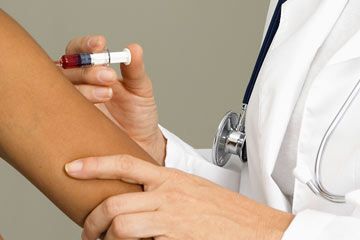Finding out you have gonorrhea and learning how to treat it can be challenging enough. But you also need to be aware of how this STI could affect your fertility -- it's another concern that shouldn't be ignored.
Whether or not you can get pregnant after having gonorrhea depends on how well the condition has been treated. Gonorrhea is essentially a bacterial infection, and it can usually be dealt with successfully with antibiotics. However, when it goes untreated, gonorrhea complications can cause damage that leads to infertility.
Advertisement
When gonorrhea isn't addressed, the infection can travel to a woman's reproductive organs. And when this happens, pelvic inflammatory disorder (PID) can develop. PID causes inflammation in and around the fallopian tubes, which can cause scar tissue to build up. It's this complication that can make it difficult to get pregnant.
When fallopian tubes are scarred, it can prevent the fertilization of eggs, and also keep fertilized eggs from entering the uterus. When a fertilized egg doesn't enter the uterus, it can lead to an ectopic pregnancy, meaning the fertilized egg begins developing in a fallopian tube instead. Ectopic pregnancies are unsustainable, and they can also severely threaten a woman's health.
Because PID can make you infertile, it's best to address it or its source -- gonorrhea -- as soon as possible. What can make this difficult is that both conditions can occur without obvious symptoms [sources: Centers for Disease Control and Prevention; PubMed]. To make matters worse, when symptoms are present, they can be mistaken for other illnesses, such as bladder or vaginal infections. This is why proper evaluation by a physician -- particularly a gynecologist -- should occur any time you experience the following signs:
- painful urination
- pain during sex
- increased vaginal discharge
- increased spotting between periods
- irregular periods
- abdominal pain
- fever
If you're diagnosed with gonorrhea or PID, you should make sure your partner is tested -- and, if necessary, treated -- for gonorrhea right away. Multiple gonorrhea infections or PID instances can increase the likelihood of scar tissue development.
About 10 to 15 percent of women with PID become infertile [source: Centers for Disease Control and Prevention]. If you experience infertility due to gonorrhea-related PID, you may still be able to conceive through the assistance of fertility drugs and surgical intervention. To find out what options are available to you, seek out the evaluation and advice of a fertility specialist.
Keep reading. We have lots more fertility information on the next page.
Advertisement


